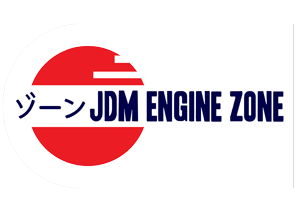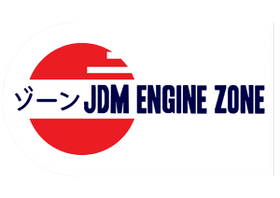How Japanese Automakers Managed to Outperform Detroit Auto Industry
How Japanese Automakers Managed to Outperform Detroit Auto Industry

The automotive industry has always been highly competitive, with manufacturers working hard to innovate, improve and capture market share. For several decades, Detroit’s “Big Three” carmakers General Motors, Ford, and Chrysler have dominated the global car industry. But in recent years, Japanese automakers such as Toyota, Honda, and Nissan have gained significant share of the market and outperformed their Detroit counterparts. In this blog, we’ll take a closer look at how Japanese automakers managed to outperform Detroit’s auto industry.

Detroit's three big automobile manufacturers: Chrysler, General Motors and Ford. Detroit's industry boomed during World War 2, where most of the motorized equipment for Allies were manufactured. After the war, these companies produced tens of thousands of cars to keep up with the increased demand.
Innovation and Continuous Improvement:

Hybrid Toyota Prius is an excellent example of Japanese Automaker's innovation. Hybrid engines are becoming more and more popular every day, and Japanese brands are leading the helm.
One of the key reasons why Japanese automakers have been able to outperform Detroit’s auto industry is their emphasis on innovation and continuous improvement. Japanese automakers have invested a lot in research and development, constantly creating newer models, advanced technologies, and better quality products than their counterparts. For instance, Toyota is famous for creating the hybrid car technology, which has now become the standard for the entire industry. Japanese automakers are also known for their attention to detail, with quality control measures that ensure their products are made to the highest possible standards.
Efficient Manufacturing Processes:

Modularity of Japanese assembly lines allow brands to quickly and efficently change the produced vehicle model or type with minimal efficency drop. On the contrary, American automakers were slow to adapt these kind of assembly lines.
Another factor that has contributed to Japanese automakers’ success is their efficient manufacturing processes. They have implemented lean manufacturing techniques and just-in-time inventory management systems that eliminate waste and increase efficiency. This has led to lower manufacturing costs, which in turn has allowed Japanese automakers to offer high-quality vehicles at a lower price compared to Detroit’s auto industry. These efficient processes have also enabled Japanese automakers to adapt quickly to changing market demands, ensuring they are among the first to offer new models to the market.
Focus on the Consumer:

Detroit's automakers mostly focused on suburban type vehicles with high fuel usage, thus they were hit hard when Oil Embargo of 1973 skyrocketed the price of fuel; also implementation of CAFE standarts stalled their development efforts where Japanese automakers were already prepared for.
Japanese automakers have a strong focus on customer satisfaction and their needs, which has given them an advantage in the marketplace. They have developed a reputation for building reliable, fuel-efficient, and safe vehicles that appeal to the consumers' practical needs. They have also built vehicles that are designed for different markets, including a focus on high mileage, low emission cars, and small and compact cars that reflect urban lifestyles. As a result, Japanese automakers have been able to capture a significant share of the global market, particularly in Asia, where their brands are perceived as a symbol of quality and reliability.
Collaboration and Partnership:

Japanese automakers focused on cooperating with American/European automakers to succeed in the mentioned markets respectively. Renault-Nissan-Mitsubishi Alliance is a great example of that, where three companies cooperate to improve their knowledge pool while borrowing designs from each other to quickly adapt to other markets.
Finally, Japanese automakers have fostered partnerships with suppliers, other automakers, and technology companies. These collaborations have allowed them to share resources, insights, and ideas, and create innovative products and technologies that better meet consumer demands. For instance, Toyota and Subaru have collaborated on hybrid technologies, sharing designs and technologies to create an advanced hybrid vehicle. Such partnerships have helped Japanese automakers to broaden their reach, improve their competitiveness, and stay ahead of the game.
In conclusion, Japanese automakers have managed to outperform Detroit's auto industry by focusing on innovation and continuous improvement, efficient manufacturing processes, customer satisfaction, and collaboration and partnerships. These factors have enabled them to create high-quality, reliable vehicles that meet consumer needs and are available at an affordable price. With the global auto industry constantly evolving, Japanese automakers’ success can be attributed to their ability to adapt to changing market demands and respond quickly to new opportunities. As the industry continues to grow and progress, Japanese automakers will undoubtedly continue to play a leading role in shaping its future.




